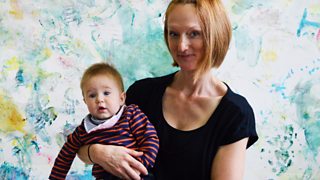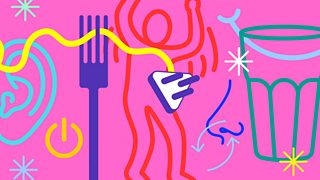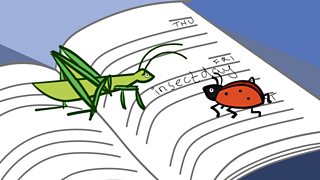What babies love best: the art of raising a creative child
To survive and thrive in an uncertain world, our children need to be creative and resilient. But how do you build these things? What does it take to make creativity a life skill and where might such a skill take a child in later life?
In The Art of Raising a Child, Lindsey Chapman meets parents and babies from Leicester who are taking part in an exciting project in getting creative, which has answering these questions at its core.
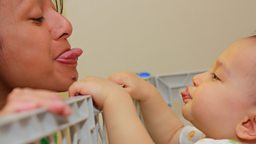
What is Talent 25?
There’s an ambitious new project underway in Leicester on behalf of the . It's called and its aim is to study the effect of creativity on hundreds of babies, from birth all the way up to their twenty-fifth birthdays. Academics from will chart how various creative activities affect the children's income, well-being and abilities in later life. It’s the first study of its kind tracking children from such a young age.
-
![]()
The Art of Raising a Child
What makes an individual creative? Can you make creativity a life skill, and where might such a skill take a child in later life?
Leicester has districts that are amongst the most deprived in the UK, and child poverty is a particular problem. The project is aiming to track families from culturally diverse and often economically challenged areas, where children often don’t get the same exposure to the arts as their more privileged peers. The creative sessions take place in community centres in the areas they are targeting: sessions with music, materials, and dance.
Why is creativity so important?
Creative capabilities are needed by everyone, in every type of job, says Nicky Morgan from the Arts Council.
Creativity gives young people the skills to problem solve and cope with adversity.
“We believe that creativity is going to be necessary for all people: for all children and for all young adults and for all adults too,” she says. “Throughout our lives we’ll need to use this imagination, this curiosity, the adaptability, the flexibility that comes with being creative and we’ll all need it to cope with the change that we have to face throughout our young lives and our adult lives.”
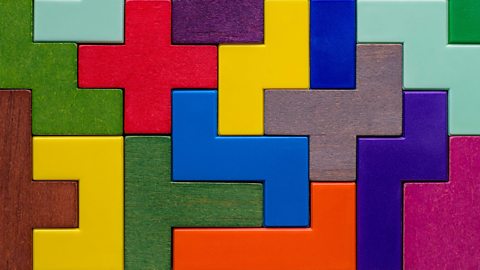
What you can do to be more creative
Tips on how you can spark your creativity on a daily, weekly and monthly basis.
Creativity gives young people the skills to problem solve and cope with adversity. It gives us empathy, understanding, and the ability to “try something different,” says Nicky. “If it doesn’t work first time then you experiment and try something else. And that’s what I think creativity is all about.”
And creativity is also about wellbeing, says Talent 25’s academic lead, Professor Bertha Ochieng: “As a health and social care researcher, I am aware of studies that indicate that the arts can make a powerful contribution to an individual’s health and wellbeing,” she says. “Engaging in artistic activities like drawing and painting is an effective method for children to express themselves.”
How creative can a baby really be?
But is it important to get in this early? Aren’t babies too young to get anything out of this?
Artistic experiences bring confidence and self-esteem to even really young children.
Not at all, says Nicky. “If we start from the very earliest age, then we can understand how important it is for parents and carers to play with their children, to sing with their children, to paint with their children, to listen to music with their children. And we’ll be able to understand how that interaction – how that communication between parent, carer and child – supports young people to be ready for the world that awaits them. I think it’s crucial,” she says.
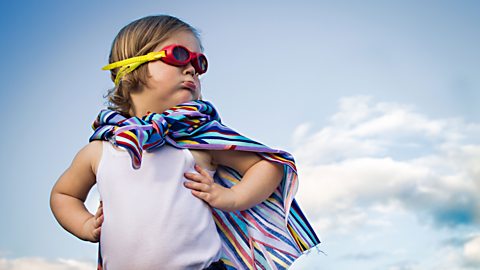
How to encourage creativity in your child
Are we bringing up children creative enough for the future they face?
Liz Clark, a dancer and choreographer who specialises in working with kids, and Talent 25’s lead artist, agrees. Artistic experiences bring confidence and self-esteem to even really young children, she argues, and the parents who attend the sessions can see that: “Their parents are learning that playing and exploring and discovering are children’s natural modes of learning.”

“She’s a lot more independent”
Lindsey meets some parents who already feel that the sessions have made a difference.
One mum, Tyra, has been taking her eight-month-old baby Nora to sessions since she was just eleven weeks old. “I wasn’t sure if she was going to get much from the sessions because she was so young she just sort of lay there still like a doll,” she admits. But already she can see the effect the classes are having on Nora, just by comparing her to her older brother – who didn’t have the same opportunity when he was a baby. “She’s a lot more independent,” says Tyra. “She’s very happy to explore my home, where my son, he’s not really. He’ll get his tablet and start playing games on it.”
Tyra also thinks she’s developed herself. “I go home now and I set up my home in a different way than I used to,” she says. She’s realised that she doesn’t need to buy new toys to stimulate her daughter. “I’ll just give her a pot and pan from the kitchen and just let her play with it. I look at everything in a different way now… I’ll look at a piece of paper and I’ll know how to make it into an activity. It’s like I’ve become more creative as well. It’s really, really amazing actually.”
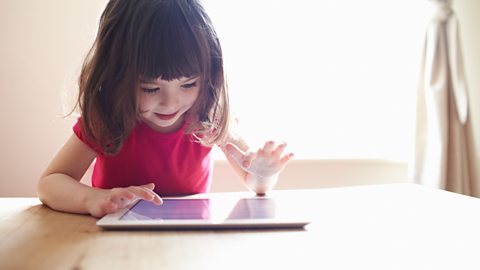
Tips for parents coping with children at home
How to keep your children occupied and focussed when schools are shut.
“He really looks forward to it”
Baby Travis’s mother Alex says the creative sessions bring her son a lot of joy. “He really looks forward to it, so when we walk into the room, he gets really excited,” she says. In one of the sessions, they were working with lights, and he’s now “absolutely obsessed” with tracing lights wherever he goes.
The sessions have also been invaluable for teaching her and her partner how to be creative with their baby. “I don’t think I would have ever thought of the ways just simple materials are used to create experiences,” says Alex. “We both appreciate arts but we don’t necessarily understand it.” And if you don’t understand it, it’s difficult to then guide your child in the direction of understanding it themselves, she says: “It’s easy to give him what we already know; it’s very difficult to give him the things that we have no idea about.” Because of Travis’s interest in lights, they took him to an exhibition in Leicester – something she admits she would never have even considered doing before.
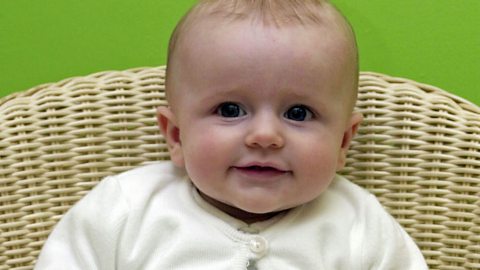
What music does your baby hear?
Dr Victoria Williamson explains why babies react more to certain styles of music.
Travis is just eleven months old. Is that too young to develop a relationship with the arts?
I don’t think I would have ever thought of the ways just simple materials are used to create experiences.
“I don’t think it’s too young,” she says. “I think everything he learns along the journey will shape him… I think it will change the way he looks at the world.”
It’s exciting to think about how youngsters like Nora and Travis and the other Talent 25 babies will develop, and what they’ll have the capacity to create over the next 25 years.
Watch this space…
More from Radio 4
-
![]()
The Art of Raising a Child
What makes an individual creative? Can you make creativity a life skill, and where might such a skill take a child in later life?
-
![]()
Nine tips for a stress-free family life
With all the chores, work, looking after the children, and other demands of daily life - is it possible not to feel frazzled?
-
![]()
The funny words that kids invent
The fantastic words that children invent and reimagine.
-
![]()
Home schooling? Five tips to help if you're feeling overwhelmed
5 top tips for home schooling your children.
